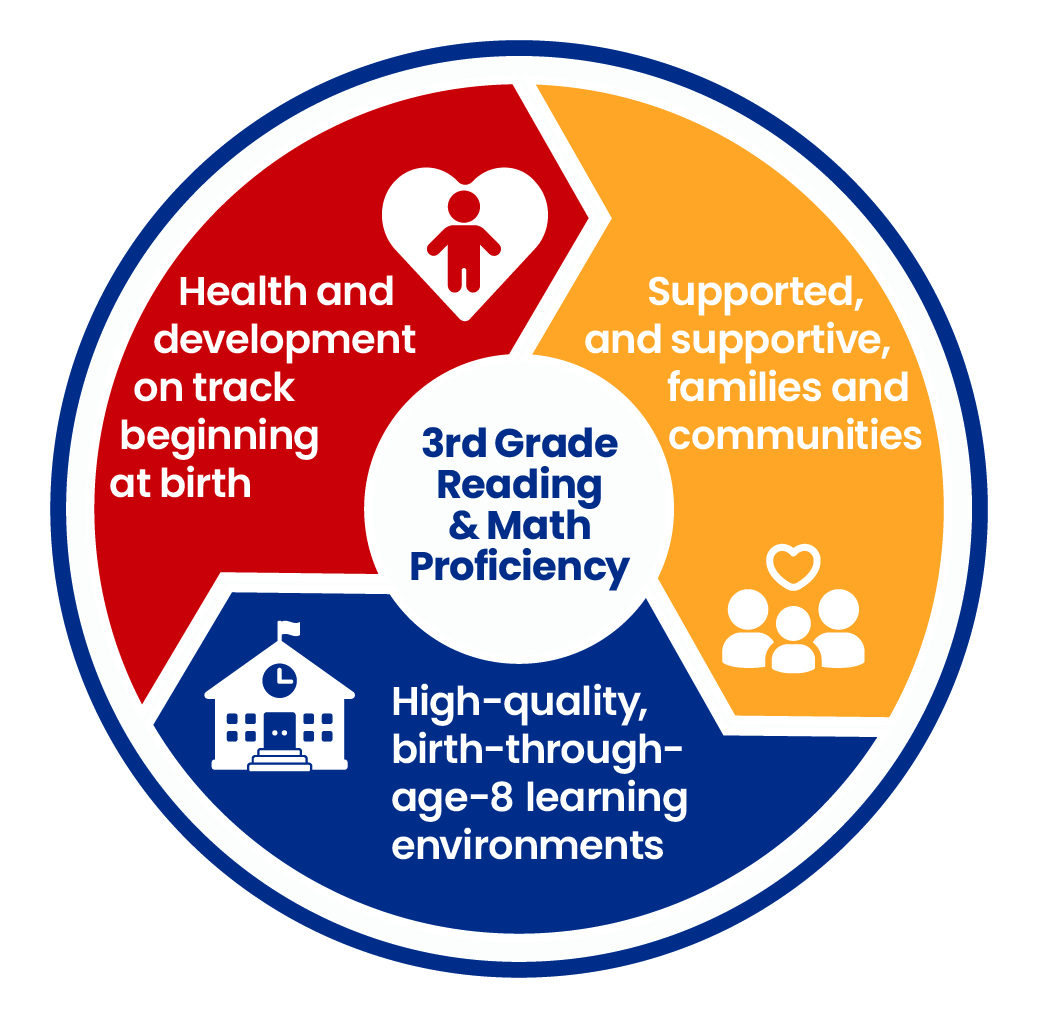
Tennessee Comprehensive Assessment Program (TCAP) reveal that nearly 60% of third-graders are not reading or performing in math at grade level. This alarming statistic isn’t just a number—it represents hundreds of thousands of children who are not reaching critical benchmarks in school. It’s well established that third-grade proficiency in both reading and math is crucial for future academic success and life outcomes. While the state has made considerable investments in post-pandemic learning recovery for Tennessee students and seen some encouraging improvement, there is more needed to ensure all students succeed in school.
The foundation for a turnaround lies in the earliest years of a child’s life. The first 8 years and especially the first 5, determine whether a child’s developing brain provides a weak or strong foundation for future learning and development. Young children need positive, enriching early learning experiences that prepare them for success in school, yet too many children begin kindergarten significantly behind their peers in key developmental domains. Once children fall behind, they tend to stay behind without significant interventions. To ensure all children have a strong foundation for learning and academic achievement, young children and their families need support.
We meet this challenge with an urgent call to action for state policy and investment: Prioritize young children and their families!
Our framework organizes policy and practice into three domains necessary to ensure children can succeed:
- High quality early learning settings
- Health, mental health and development on track from birth
- Supported and supportive families and communities
Investing in young children and their families is the key to improving Tennessee education outcomes.

